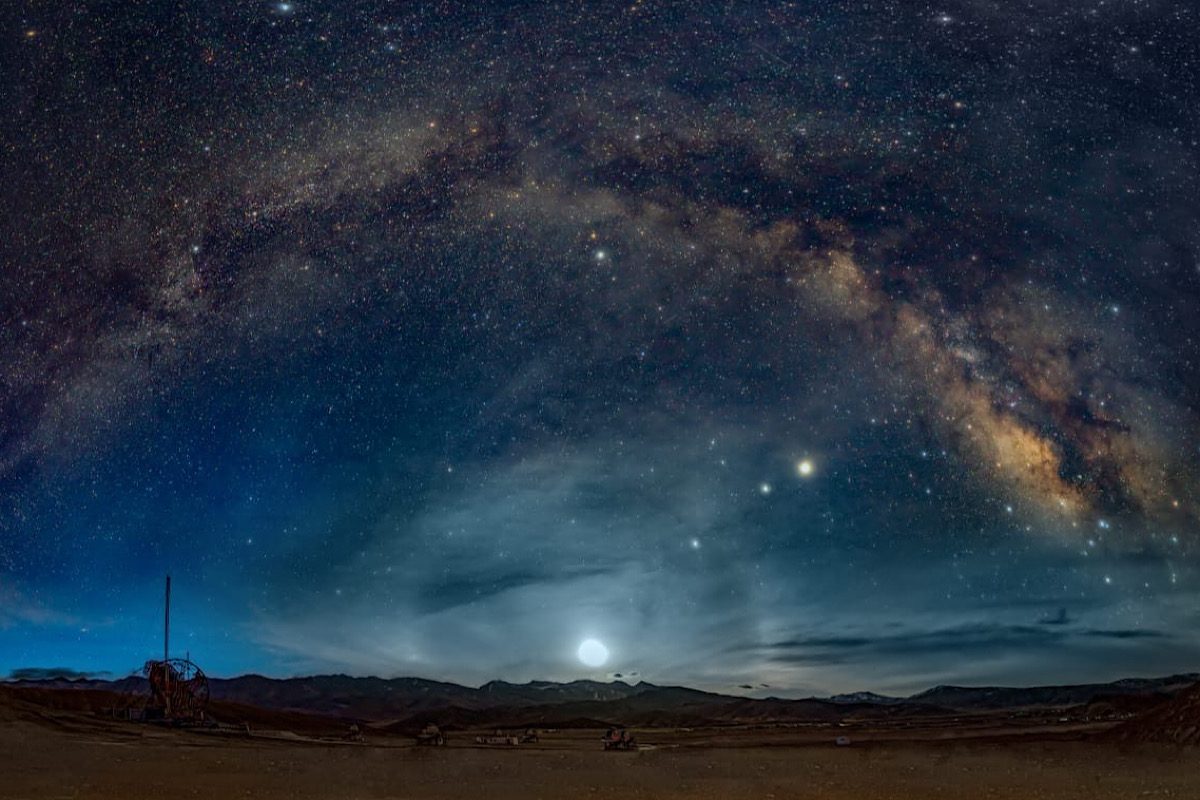Indian astronomers decode mystery of vampire star using data from AstroSat
A team of astronomers from the Indian Institute of Astrophysics (IIA), an autonomous institute of the Department of Science and Technology
The Hanle village encompasses an area of 1,073 square kilometres and is situated within the Changthang Wildlife Sanctuary. The reserve has the world’s second-highest optical telescope.

India’s first dark sky reserve in Ladakh celebrates its first star party
The Hanle village encompasses an area of 1,073 square kilometres and is situated within the Changthang Wildlife Sanctuary. The reserve has the world’s second-highest optical telescope. It is home to IIA’s Indian Astronomical Observatory and hosts many professional telescopes due to its dark skies and dry weather.
About 30 amateur astronomers travelled to Hanle with their telescopes and cameras to experience the beauty of the skies unaffected by light pollution and to photograph faint celestial objects that cannot be observed from other locations.
It was informed that Hanle has one of the darkest skies in India and recently, an area with a radius of roughly 22 kilometres around Hanle has been notified by the Union territory of Ladakh as the Hanle Dark Sky Reserve (HDSR).
Advertisement
The engineer in charge of the observatory, Dorje Angchuk, added that HDSR aims to control man-made light pollution in the area to preserve the pristine dark skies for astronomical research. He also added that the reserve is promoted as a tourist destination for enjoying the night sky, and helps in socio-economic development of the local villages.
Award-winning astrophotographer Ajay Talwar added that amateur astronomers are always in search of dark skies to be able to observe faint objects and photograph them in great detail. He added that he has been coming to Hanle for many years now, and certain astronomical phenomena like the “false dawn” or the “zodiacal light, can be observed in the country only from this location due to its darkness.
Furthermore, he said that zodiacal light is the sunlight that is scattered by the dust in the plane of the solar system. It is extremely faint and can only be observed before dawn from the darkest of locations. The participants of the Star Party could see and photograph this false dawn on two successive nights.
Local villagers, tourists, and others from Bengaluru, Chennai, Delhi, Mandi, Ahmedabad, Lakshadweep, and Mumbai participated in the star party.
Sudhash Natarajan from Bangalore Astronomical Society who has been coming to Hanle every year, said as a keen visual observer, he is able to see obscure faint galaxies at HDSR with its Bortle-1 (darkest) sky.
Additionally, Dorjey Angchuk added that Hanle is a haven for amateur astronomers. He said that they are planning to make the HDSR Star Party an annual event. He hopes that it will be one of the most sought-after events for astronomy enthusiasts in India and abroad. He further added that HDSR is promoted as a site for astro-tourism.
The head of the outreach section (SCOPE Section) at IIA, Niruj Mohan Ramanujam, informed that with funding from UT Ladakh, they have purchased 24 small telescopes and given it to selected villagers inside the reserve and have also trained them as “astronomy ambassadors”.
Kesang Dorjey, from village Khaldo in Hanle added that it was a wonderful opportunity for us to learn from the leading amateur astronomers of the country and become even better-trained guides to the night sky. The director of IIA, Prof Annapurni Subramaniam, said they continue to share the unique skies of HDSR with astronomy enthusiasts and are happy that the local communities are trained to be astronomy ambassadors for tourists.
Advertisement